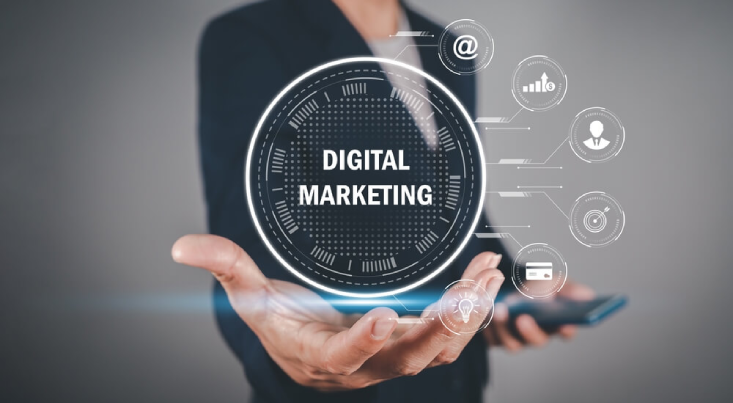Why Every Small Business Needs Digital Marketing to Thrive
In today’s fast-paced digital world, traditional marketing is no longer enough to keep a small business afloat. Whether you’re running a café, a boutique, or a consultancy, your potential customers are online—searching, scrolling, and shopping. That’s where digital marketing becomes not just important but essential.
Digital marketing helps small businesses reach their audience, compete with larger brands, and drive real, measurable growth. Let’s explore why embracing digital marketing is one of the smartest decisions a small business owner can make.
1. Digital Marketing Levels the Playing Field
Unlike traditional media, digital marketing doesn’t require a huge budget to make an impact. Even a small business with limited resources can compete alongside larger brands with the right strategies. Platforms like Google Ads, Facebook, Instagram, and email marketing allow small businesses to reach their target audiences efficiently without overspending.
Example: A local bakery can run a Facebook ad targeting nearby residents, reaching thousands of people for the cost of a single flyer distribution campaign.
2. Your Customers Are Online
Your target audience is already online, searching for products and services like yours. If you’re not visible where your customers are looking, you’re missing out on valuable business opportunities.
-
97% of people learn about a local business online more than anywhere else.
-
88% of consumers who search for a type of local business on a mobile device visit or call that business within 24 hours.
Being present on platforms like Google, social media, and online directories helps customers find you quickly and easily.
3. Cost-Effective Marketing with High ROI
Digital marketing offers some of the highest returns on investment. Email marketing, for instance, has an average ROI of $42 for every $1 spent. Similarly, SEO (Search Engine Optimization) and content marketing generate long-term traffic and leads at a fraction of traditional advertising costs.
Small businesses can invest in:
-
Social media ads targeting specific demographics
-
SEO to improve organic search visibility
-
Google My Business for local discovery
-
Email campaigns to retain and re-engage customers
4. Build Stronger Customer Relationships
Digital platforms offer multiple touchpoints for businesses to interact with customers. From personalized email newsletters to quick replies on Instagram DMs, you can engage directly with your audience in real time.
Additionally, online reviews, comments, and testimonials help build credibility and trust, encouraging new customers to try your products or services.
Pro Tip: Always respond to customer queries and feedback promptly—it shows you care.
5. Track, Measure, and Optimize Results
One of the biggest advantages of digital marketing is data. You can track every campaign and understand what’s working and what isn’t. Tools like Google Analytics, Facebook Insights, and email analytics help you make data-driven decisions.
You’ll know:
-
How many people clicked your ad
-
Which pages perform best on your website
-
What time your audience is most active
-
Which campaigns convert best
With this knowledge, you can continuously refine your marketing efforts for better results.
6. Boost Local Visibility with SEO and Listings
Search Engine Optimization (SEO) is critical for being found online. By optimizing your website for keywords related to your business and location, you can rank higher on Google searches.
Additionally, setting up and managing your Google Business Profile ensures your business appears on Maps and in local search results.
Bonus Tip: Ask happy customers to leave Google reviews to improve your local SEO score.
7. Adapt to Consumer Trends and Behaviors
Digital marketing lets you stay agile and adapt to changing trends quickly. For example, if a product is gaining popularity or a seasonal service is in demand, you can create and promote content or ads in real time.
Trends like video marketing, influencer partnerships, and short-form content (like Instagram Reels or YouTube Shorts) help you stay relevant and top of mind.
Conclusion
In a digital-first world, small businesses can’t afford to ignore the power of online marketing. From expanding reach and building stronger customer relationships to increasing sales and improving brand recognition—digital marketing is the engine that drives growth.
Whether you’re just getting started or looking to scale, now is the time to invest in digital marketing and unlock your business’s full potential.

